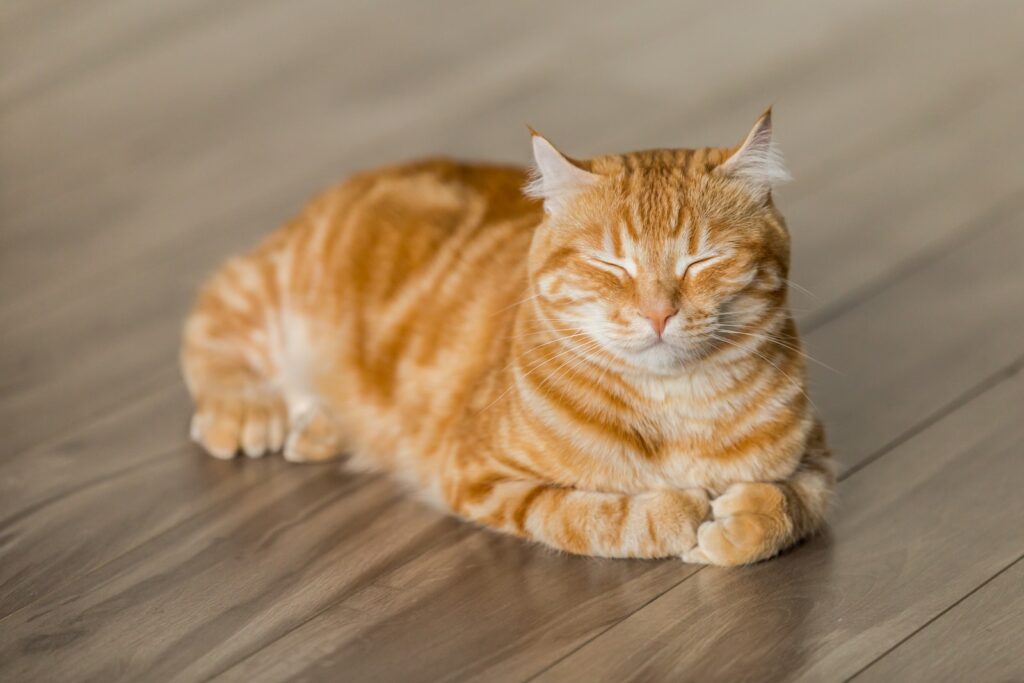Can Cats Eat Biscuits? — Yes, They can
When it comes to cats and biscuits, the answer is a definite yes. Cats can indeed eat biscuits, but it’s important to note that not all biscuits are created equal. It’s crucial to select biscuits that are specifically formulated for feline consumption. These biscuits undergo a manufacturing process that ensures the ingredients are safe and beneficial for cats.
Can Kittens Eat Biscuits?
Kittens, on the other hand, may have a harder time digesting biscuits. Their delicate digestive systems may not be fully developed to handle the complex carbohydrates found in biscuits. Therefore, it is best to avoid feeding biscuits to kittens until they are older and their digestive systems have matured. Instead, opt for a high-quality kitten-specific diet recommended by veterinarians to meet their nutritional needs.
Things to consider when feeding biscuits to kittens?
When kittens reach the appropriate age to consume biscuits, it is important to introduce them gradually. Start by mixing small amounts of softened biscuits with their regular kitten food to allow their digestive system to adjust. Monitor their response and ensure they are tolerating the biscuits well without any adverse reactions or digestive issues.
Nutritional Benefits of Biscuits for Cats — Why Biscuits are Good for Cats?
1. Balanced Nutrition
Biscuits formulated for cats are often fortified with essential nutrients to support their overall health. These include proteins, vitamins, minerals, and antioxidants that contribute to a well-rounded feline diet.
2. Dental Health
The crunchiness of biscuits can help remove plaque and tartar buildup on a cat’s teeth, promoting better dental health. Chewing on biscuits can also stimulate saliva production, which aids in maintaining oral hygiene.
3. Weight Management
Certain biscuits are designed to be lower in calories and fat content, making them a suitable option for overweight cats or those prone to weight gain. These biscuits can help in maintaining a healthy weight and prevent obesity-related health issues.
4. Hairball Control
Some biscuits are formulated with added fibers that assist in reducing hairballs in cats. The fibers aid in the passage of hair through the digestive system, minimizing the likelihood of hairball formation.
5. Digestive Health
Biscuits may contain prebiotic fibers that promote healthy digestion by supporting the growth of beneficial bacteria in the gut. This can help prevent gastrointestinal issues and improve overall digestive health in cats.
Potential Allergies: Can Cats Be Allergic to Biscuits?
Cats can develop allergies to certain ingredients commonly found in biscuits. Wheat and other grains, as well as artificial preservatives and food additives, are known allergens for some felines. It’s important to closely observe your cat’s reaction after introducing biscuits and consult a veterinarian if any adverse symptoms occur.
Symptoms of Biscuit Allergies in Cats
- Itching and Skin Irritation: Cats with biscuit allergies may exhibit excessive scratching, skin redness, or the formation of skin lesions.
- GI Disturbances: Digestive issues like vomiting, diarrhea, or constipation may indicate an allergic reaction to biscuits.
- Respiratory Problems: Wheezing, coughing, or sneezing may suggest an allergic respiratory response to certain biscuit ingredients.
What to Do If Your Cat Shows Symptoms?
- Consult Your Veterinarian: Seek professional advice from a veterinarian to properly diagnose and treat any suspected allergies in your cat.
- Elimination Diet: Your veterinarian may recommend an elimination diet to identify the specific biscuit ingredient causing the allergy and to find suitable alternative options.
- Alternative Treats: In case of allergies, it’s crucial to eliminate biscuit treats from your cat’s diet and find suitable alternative treats that are free from the allergen.
Recommended Amount: How Much Biscuits Can a Cat Consume?
The recommended amount of biscuits for a cat depends on various factors such as the cat’s age, weight, activity level, and overall health. It’s important to consult with a veterinarian to determine the appropriate portion size and frequency of biscuit consumption for your specific cat.
Things to Consider When Feeding Biscuits to Cats
While biscuits can be a nutritious addition to a cat’s diet, it’s essential to consider a few things. Ensure that the biscuits you offer are specifically formulated for cats and free from ingredients that may trigger allergies. Additionally, always provide fresh water alongside biscuits to promote hydration.
How to Feed Biscuits to Cats: A Quick Guide
Feeding biscuits to your cat can be a delightful experience for both you and your feline companion. Here’s a quick guide to get you started:
Delicious Biscuit Delight Recipe
Indulge your cat with this simple and tasty homemade biscuit recipe:
- Mix half a cup of whole wheat flour, half a cup of chicken broth, and a tablespoon of olive oil in a bowl.
- Knead the mixture until it forms a dough-like consistency.
- Roll out the dough and cut it into small biscuit shapes.
- Bake the biscuits in the oven at 350°F (175°C) for approximately 15 minutes or until they are golden brown.
- Let them cool, and your homemade biscuits are ready to be served as a special treat for your beloved cat.
Conclusion
Biscuits can be a valuable addition to a cat’s diet, providing numerous nutritional benefits and contributing to their overall well-being. However, it is essential to select biscuits specifically formulated for feline consumption and to consider any potential allergies that your cat may have. Always consult with a veterinarian for personalized recommendations and guidance on feeding biscuits to your furry friend.






